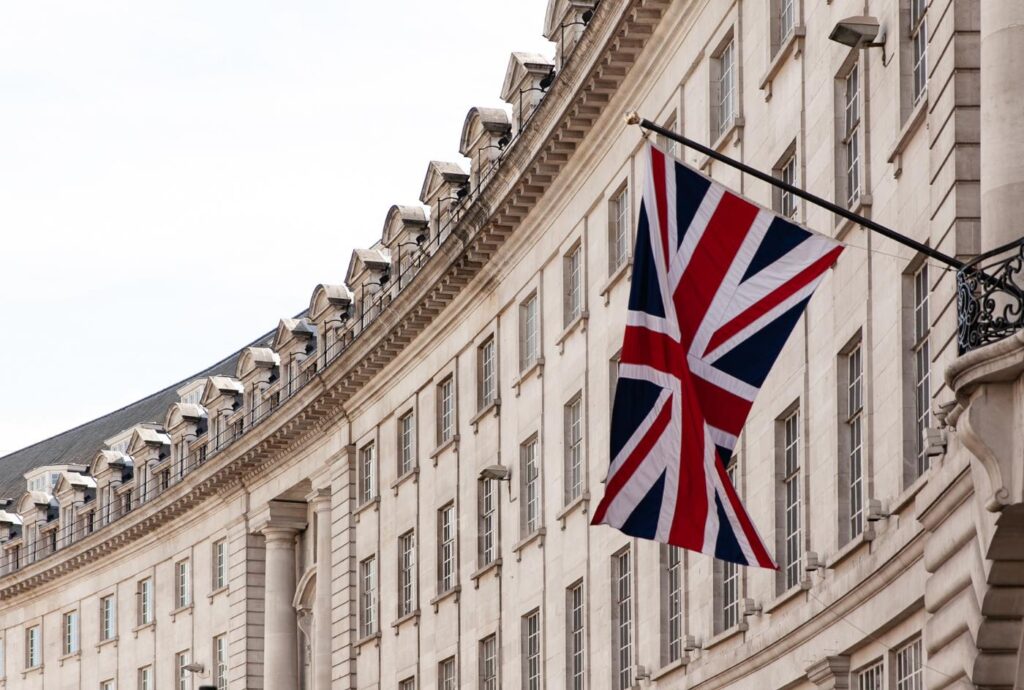Nigeria is facing its worst economic crisis in decades, with skyrocketing inflation, a national currency in free-fall and millions of people struggling to buy food
Olayomi Koiki

The United Kingdom has warned its citizens against travelling to several parts of Nigeria, noting that another wave of nationwide hunger protests may erupt anytime with little notice.
“Political rallies, protests and violent demonstrations can take place with little notice. Get advice on areas to avoid,” the Foreign, Commonwealth & Development Office (FCDO) said in a travel advisory issued on Tuesday.
The FCDO warned UK citizens against all travels but essential to Abuja, Lagos, Borno, Kano, Imo and other major cities with the view that nationwide protests might recur following the conclusion of the initial wave of 10 days demonstrations earlier this month.
“Widespread public demonstrations took place across Nigeria from 1 to 7 August, including in major cities of Abuja and Lagos. This resulted in disruptions, reports of violence, and use of tear gas by security services in various locations,’’ the FCDO said.
“Protests have now largely receded but may reoccur with little notice. Exercise caution when travelling, consider avoiding travel after dark, avoid large crowds and gatherings, and monitor local media reporting, as well as UK Travel Advice.”
In previous travel advisories, the FCDO advised Britons against travelling to most northern states including Borno, Katsina, Kano, Kebbi states over terrorism. It also warned against travelling to Abia State, non-riverine areas of Delta, Bayelsa, Rivers and Akwa Ibom and Anambra and Imo states over insecurity.
Britons have been advised to be cautious travelling to several other places across the West African nation over instabilities.
“Incidents of inter-communal violence occur frequently and often without warning throughout Nigeria. Although foreign nationals are not normally targeted, there is a risk you could be caught in an attack. Monitor local government announcements and media reporting.”
The latest FCDO travel advisory was issued days after several countries including Nigeria warned citizens against travelling to the UK amid violent far-right protests targeted at mostly black and Asian immigrants.
Anti-immigrant protesters stormed several British cities after a 17-year-old second generation immigrant, Axel Muganwa Rudakubana, who is of Rwandese descent, stabbed and killed three young girls at a Taylor Swift-themed dance class in Southport late last month.
Southport mosque, hotels housing asylum seekers and property suspected to belong to immigrants were targeted and burnt by violent mobs calling for deportation of immigrants. People were also assaulted on the street by the protesters.
Last week, Amnesty International accused Nigerian security forces of killing at least 21 protesters during a week of economic hardship protests
Police and other security agencies clamped down on protests after thousands of people joined rallies against government policies and the high cost of living from August 1st to 10th. Protests have since dwindled significantly.
Security forces have denied responsibility for deaths during the protests.
Nigeria is facing its worst economic crisis in decades, with skyrocketing inflation, a national currency in free-fall and millions of people struggling to buy food. Only two years ago Africa’s biggest economy, Nigeria is projected to drop to fourth place this year.
The pain is widespread. Unions strike to protest salaries of around $20 a month. People die in stampedes, desperate for free sacks of rice. Hospitals are overrun with women wracked by spasms from calcium deficiencies.
Although President Bola Tinubu increased the minimum wage — after strike action and months-long negotiations with labour unions — from N30,000 to N70,000, his government has increased spending for officials at a time of nationwide starvation.
For workers earning the new N70,000, or $43, per month minimum wage, capricious inflation and naira value have inflicted too much damage for the changes to make any difference in their lives.
The crisis is largely believed to be rooted in two major changes implemented by Mr Tinubu, elected 14 months ago: the partial removal of fuel subsidies and the floating of the currency, which together have caused major price rises.
A nation of entrepreneurs, Nigeria’s more than 200 million citizens are skilled at managing in tough circumstances, without the services states usually provide. They generate their own electricity and source their own water. They take up arms and defend their communities when the armed forces cannot. They negotiate with armed kidnappers when family members are abducted.
But right now, their resourcefulness is being stretched to the limit.
